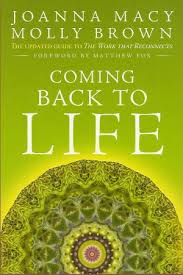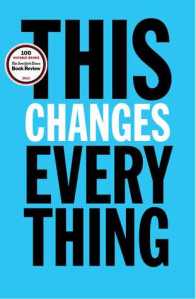
When I was a practicing medical librarian, I read an extraordinary work of medical humanities journalism by Sheri Fink, MD: Five Days at Memorial: Life and Death in a Storm-Ravaged Hospital.
Dr. Fink won a Pulitzer Prize for her initial coverage of the disaster that played out in a New Orleans hospital serving the poor during Hurricane Katrina, and she is currently doing excellent reporting on the pandemic for The New York Times.
I wrote about Five Days at Memorial on Books Can Save a Life in 2014. I’m including a condensed version of the post below, because in pandemic hot spots around the United States, critical care resources are being stretched to their limits – needlessly so, thanks to the scandalously inadequate national response to COVID-19 – as they were in Hurricane Katrina.
Immersive and meticulously researched journalism like Dr. Fink’s can make these issues real for us in a way that is immediate and clarifying.
Secondly, I’m looking to pass along responsible, innovative journalism in this climate of conspiracy theories and misinformation. For excellent reporting about our current pandemic, for example, read or listen to Ed Yong’s work in The Atlantic, especially his must-read article published today, “How the Pandemic Defeated America.”
Here’s what Yong had to say about the current role of journalism in an interview with CNN: (Thanks to Tom Jones of The Poynter Report for passing this along.)
“I think of the information around the pandemic as rapids, really fast flowing torrential water. It’s so easy to be swept up in it and feel like you’re being carried along, feeling like you’re drowning in it. What I think really good journalism can do is to act as a rock in the middle of that fast flow to give people stable ground where they can stand and observe what is moving past them without being carried along by it.”
Below is a streamlined version of my original post about Five Days at Memorial:
“He would push 10 mg of morphine and 5 mg of the fast-acting sedative drug Versed and go up from there.” – Sheri Fink, Five Days at Memorial: Life and Death in a Storm-Ravaged Hospital
Five Days at Memorial is about five days in hell.
After Hurricane Katrina wreaked havoc on New Orleans, staff at Memorial Medical Center thought the facility and everyone in it had survived the storm intact.
Then the levees broke and the water came.
Darkness ensued, air conditioning stopped, and life support equipment shut down. No rescue was forthcoming from federal, state, or local disaster relief agencies or the hospital’s corporate owners. Toilets overflowed. Hospital staff occasionally heard gunshots in the surrounding neighborhood.
Memorial Medical Center had no evacuation plan for a disaster of this type, and staff were not trained in disaster management, even though the hospital had a history of flooding.
To get patients (most of them frail and elderly) to the helipad for the occasional helicopter that eventually did show up, staff had to carry them in sheets down several flights of dark stairs, through a small shaft into the parking garage, and up two more flights. This took well over half an hour for each patient.
By the time Memorial Medical Center was entirely evacuated, 45 patients had died. Twenty-three bodies were found to have high levels of morphine and other drugs. According to the account Dr. Fink pieced together, it was alleged some patients were going to die anyway – they wouldn’t survive evacuation – and so they were euthanized to prevent suffering.
Dr. Fink covers the legal and political aftermath and discusses the role of families (or lack of it if they are excluded) in making difficult care decisions when resources are scarce. She calls for comprehensive national disaster response requirements for all US hospitals.
Five Days at Memorial will leave you unsettled by the perfect storm of failure on every level, and considerably more informed about the rationing of health care resources and the nearly impossible ethical decisions that must be made in disasters when there are not enough resources to save everyone.
Dr. Fink’s book could, literally, save lives.
Racism and social justice
Two outstanding, timely works of journalism I’ll be reading and posting about soon are by Pulitzer Prize winning Isabel Wilkerson.
Wilkerson is an immensely gifted writer who spent decades researching and writing the two books below. In this powerful TED talk, she highlights the theme of her book The Warmth of Other Suns. Her Caste is getting rave reviews, and I expect will be on many a reading list this fall.
 Caste: The Origins of our Discontents (just published in the US today)
Caste: The Origins of our Discontents (just published in the US today)
The Warmth of Other Suns: The Epic Story of America’s Great Migration (See Claire’s excellent post over at Word by Word.)





